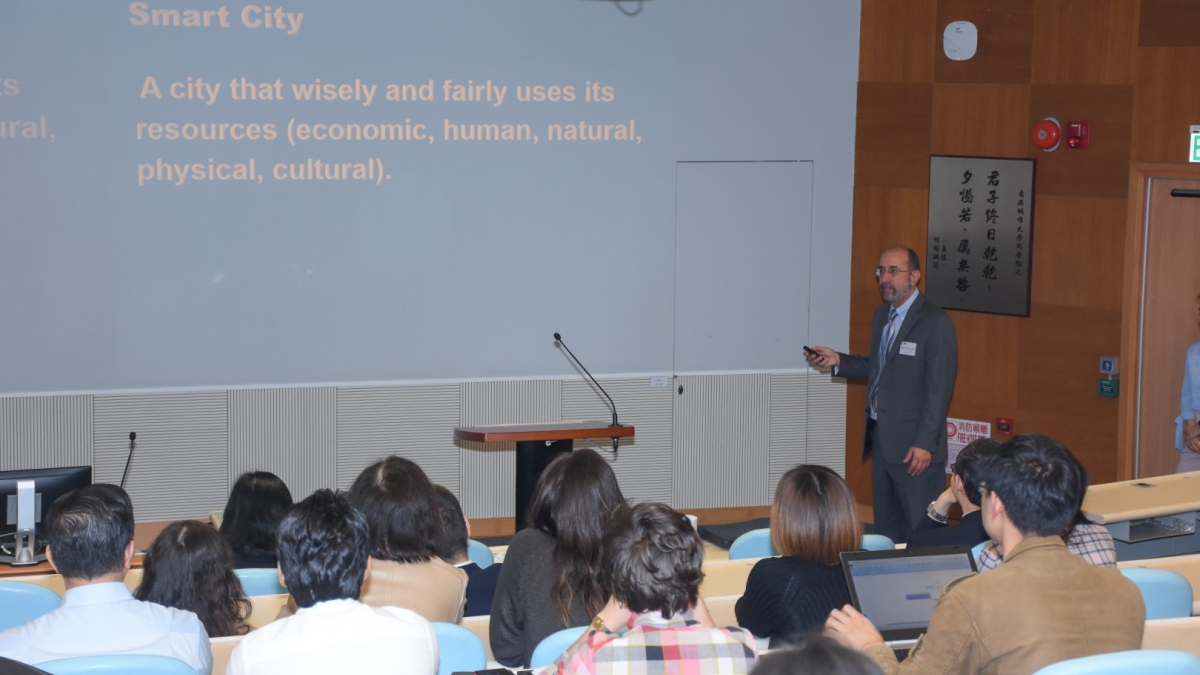ASU picked to advise Hong Kong on sustainability

Sustainability professor Rob Melnick presents his keynote address, "The Ubiquity of Urban Sustainability," at City University of Hong Kong. Photo courtesy City University of Hong Kong. Used with permission.
When City University of Hong Kong asked Rob Melnick to present a keynote address at its annual S-Day for Hong Kong sustainability summit, he recognized it as an opportunity for Arizona State University to present the Special Administrative Region of Hong Kong with innovations and solutions to sustainability challenges. This wasn’t ASU’s first such invitation — ASU President Michael Crow spoke at the same event in 2014.
It’s fair to say Melnick has a good grasp of the main issues surrounding sustainability in Hong Kong. For the past six years, he has taught study abroad courses in Hong Kong on urban sustainability, partnering first with CityU and more recently with Hong Kong University of Science and Technology, engaging more than 150 Hong Kong and ASU students. As part of their studies, participating students lived in Hong Kong and developed solutions to many of Hong Kong’s most daunting challenges.
Melnick, presidential professor of practice in ASU’s School of Sustainability, is also the university’s official representative to the Global Consortium for Sustainability Outcomes. His trip to Hong Kong included a signing ceremony affirming CityU’s membership in the Consortium, whose member universities collaborate to develop and implement solutions to urgent sustainability challenges in cities around the world.
Melnick’s presentation at the CityU event, titled “The Ubiquity of Urban Sustainability,” focused on a Global Consortium founding principle — that effective solutions to urban social and environmental problems developed in one city can and should be adapted and applied in other cities, notwithstanding different cultures and capacities.
“As the world continues to urbanize, sustainability problems will markedly increase — greenhouse gas emissions, demand on limited supplies of water, housing affordability, energy use,” said Melnick. “As institutions of teaching and innovation, universities need to develop viable solutions to these problems and put them in the hands of the people who can most directly impact them.
“The Global Consortium for Sustainability Outcomes is an international network of universities that are, in fact, rising to this exact challenge.”
More Environment and sustainability

A world full of plastic ... not fantastic
Editor’s note: This is the seventh story in a series exploring how ASU is changing the way the world solves problems.…

Team wins $10M XPRIZE Rainforest competition for novel solution
Several Arizona State University experts are on a team that created a new way to put a price on the rainforest in order to save…

ASU President Michael Crow named to TIME100 Climate list
Arizona State University President Michael Crow has been named to the 2024 TIME100 Climate list of leaders and innovators driving…